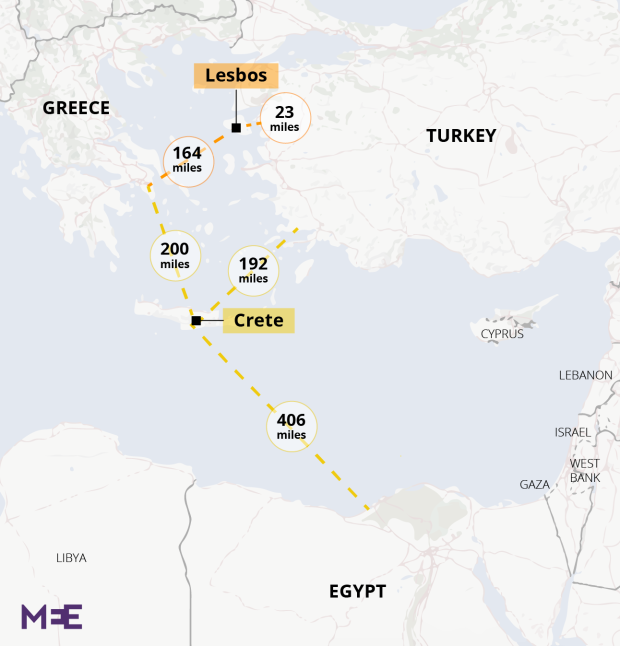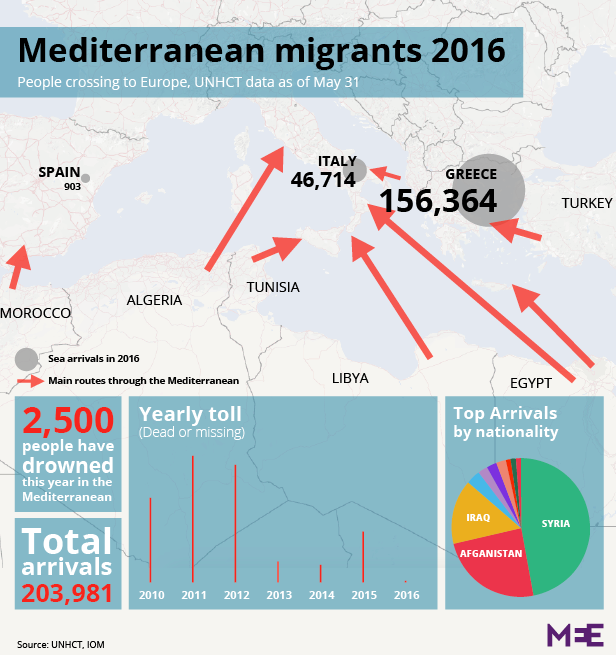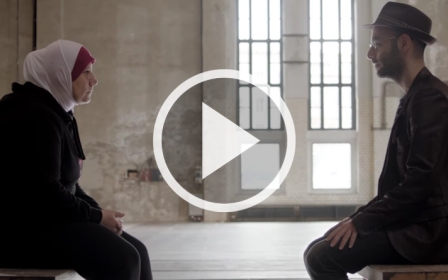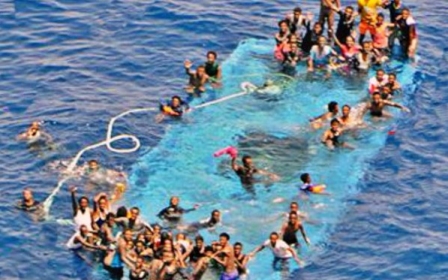132 bodies wash up on Libyan beach over past four days
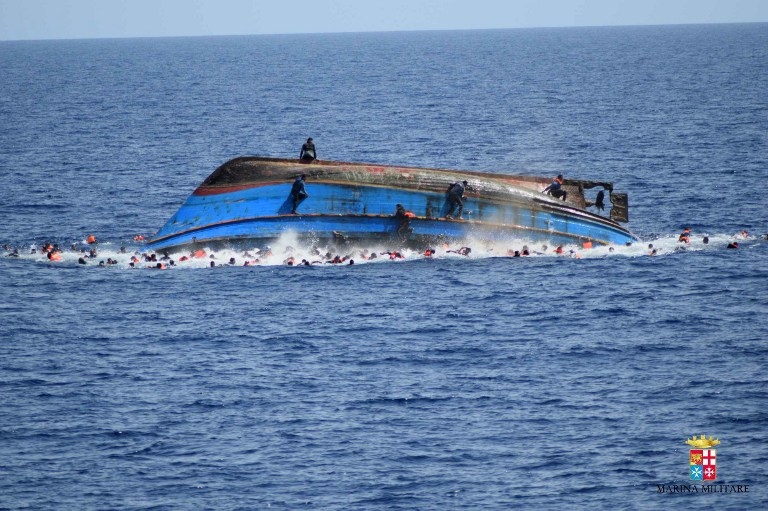
The bodies of 132 migrants trying to reach Europe have been found on western Libyan beaches over the past four days, the Red Crescent and a local official said on Sunday.
All except three washed up on beaches in the town of Zuwarah, while the rest were found on a beach in Mellitah 20 kilometres (12 miles) further east.
"The total number of migrant bodies found on the beaches of Zuwarah since Thursday has gone up to 129," Red Crescent spokesman Mohammad al-Misrati told AFP.
He said 117 bodies were found on Thursday, confirming earlier reports, and said 12 more were found on Friday.
Zuwarah council member Khaled Ben Khalifa said three other bodies washed up on a beach in Mellitah, near a gas plant, bringing the total to 132.
It was not immediately clear when the boat carrying those found capsized or from where it had launched.
Earlier on Friday, a boat ferrying hundreds of people capsized near Greece, with at least four people confirmed dead according to the Greek coastguard.
Reports vary but some indicate that the 25m boat, half of which was underwater when the coastguard arrived, was carrying as many as 700 people.
More than 300 have now been rescued off the Greek island of Crete where the boat started to have problems.
It was the second boat found in that area of the southern Aegean Sea since last week, indicating that people smugglers may be forging a new route.
At least four ships passing through the area picked up the survivors, who are expected to be taken to Crete, a coastguard spokeswoman said.
The boat's port of origin and its destination have not been confirmed but initial indications suggest that it was coming from Alexandria in Egypt.
Aid workers have told Middle East Eye that there is growing concern that more boats could be leaving from Egypt, a much more perilous and longer route to Europe but one which is far less monitored by coast guards and agencies like the European border control body Frontex.
In April, in an incident that is still surrounded by mystery, another boat from Egypt capsized. A group of 41 people were rescued but the survivors claim that as many as 500 others could have died when the boat sank in an unconfirmed location between Libya and Crete.
Under a March deal between Turkey and Greece, all new refugees and migrants must be registered upon arrival and deported immediately if their claims are rejected, leaving many trying to avoid detection.
The coastguard spokeswoman said a passing ship spotted the sinking vessel off Crete, Greece's largest island.
The coastguard rushed two patrol boats, a plane and a helicopter to the scene.
She said a major rescue operation was under way in clear but windy conditions about 75 nautical miles south of the island, but the number of those still missing was not known.
The spokeswoman had earlier said that "the number of people in distress could be counted in the hundreds".
She added that "people are in the water, boats crossing the area have thrown life buoys and are moving to save the migrants".
NATO deployment
Some 204,000 migrants and refugees have crossed the Mediterranean to Europe since January, the United Nations refugee agency said on Tuesday.
More than 2,500 people have died trying to make the perilous journey this year.
In the most recent deadly incident in the Aegean, four women and a child drowned in early April off the island of Samos.
The vast majority of deaths occurred on crossings between Libya and Italy, as new arrivals to Greece have fallen sharply since the EU entered into a controversial deal on 20 March with key transit country Turkey to stem the flow of people fleeing primarily from the war in Syria, although today's shipwreck might indicate that smugglers are trying to find alternative ways from Turkey and the Eastern Mediterranean to Greece.
Before the influx of migrants and refugees to the Greek islands last year, several boats were intercepted or capsized further west in the Aegean in recent years, usually en route to Italy from Turkey or from North Africa.
On 27 May, the Greek coastguard intercepted a boat off Crete carrying 65 Syrian, Afghan and Pakistani nationals, and under the control of two suspected people traffickers - a Ukrainian and an Egyptian.
The coastguard did not indicate if that boat, which those aboard said had left from Turkey, was heading for Italy or whether the smugglers had chosen the route through the southern Aegean to reach Greece by avoiding NATO ships deployed further north and east.
The NATO deployment is aimed at cutting off the Aegean Sea route used by hundreds of thousands of people to reached Europe since last year, fleeing poverty and conflict in Asia, the Middle East and Africa.
New MEE newsletter: Jerusalem Dispatch
Sign up to get the latest insights and analysis on Israel-Palestine, alongside Turkey Unpacked and other MEE newsletters
Middle East Eye delivers independent and unrivalled coverage and analysis of the Middle East, North Africa and beyond. To learn more about republishing this content and the associated fees, please fill out this form. More about MEE can be found here.


